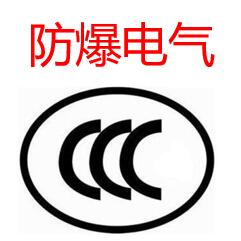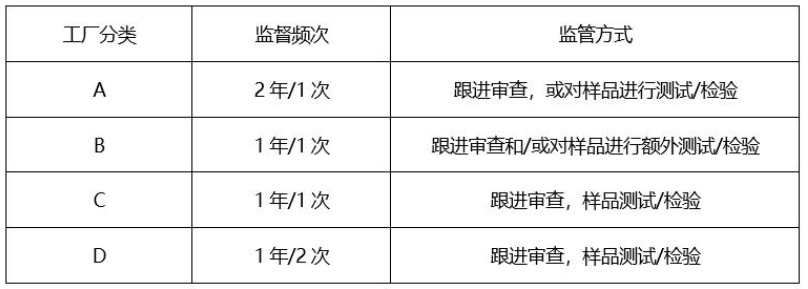
Recently, the State Administration for Market Regulation issued an implementation notice on converting explosion-proof electrical and other products from production licenses to mandatory product certifications. The announcement clearly states that from October 1, 2019, explosion-proof electrical appliances, household gas appliances, and household refrigerators with a rated capacity of 500L or more will be included in the CCC certification management scope. And the transition period is one year. Starting from October 1, 2020, the above products are not allowed to leave the factory, sell, import, or be used in other business activities without obtaining mandatory product certification certificates and labeling mandatory certification marks. This means that in the future, enterprises applying for explosion-proof certificates will become CCC mandatory certification and will follow the implementation rules of CCC mandatory certification.

As the transition from production licensing to mandatory product certification for explosion-proof electrical equipment approaches, enterprises will inevitably have various questions about the certification qualifications and processes for explosion-proof electrical equipment in the next year and beyond.
1. Is there a designated product catalog for the mandatory certification of explosion-proof electrical products?
Answer: Yes. At the same time as the State Administration for Market Regulation issued a notice on the conversion of explosion-proof electrical products from production licenses to mandatory certification, it also issued a notice on the conversion of explosion-proof electrical products from production licenses to mandatory certification. Products that belong to the product catalog must present a valid production license or CCC certification for production, sales, or other business activities during the transition period. After the transition period, only valid CCC certification can be used for factory production, sales, or other business activities.
2. How to obtain certification for explosion-proof electrical products outside of the product catalog?
Answer: Currently, the product catalog only includes the majority of explosion-proof electrical equipment, but there is still a portion of explosion-proof electrical equipment, such as large system equipment, explosion-proof lamps, etc., which are not included in the product catalog. Therefore, it is necessary to apply for an explosion-proof certificate as before and obtain an explosion-proof certificate before being used in explosive hazardous areas.
3. If products listed in the explosion-proof CCC certification catalog that are currently applying for explosion-proof certificates or have already obtained explosion-proof certificates are converted to CCC certificates?
Answer: The transition period for converting explosion-proof electrical equipment to CCC certification is from October 1, 2019 to October 1, 2020, lasting for one year. If the type test report for issuing the explosion-proof qualification certificate is from a CCC designated laboratory, the explosion-proof qualification certificate is valid during the transition period. But it is also necessary to review whether there are any missing items in the testing items in the report. If there are any missing items, supplementary tests need to be conducted, and the report needs to be converted to CCC report format.
4. What are the requirements for applying for enterprise qualifications after converting explosion-proof electrical products to mandatory product certification?
Answer: Compulsory product certification, also known as CCC certification, refers to the supervision after the initial factory inspection and certification of the type test. Simply put, it means conducting a factory audit. The applying enterprise must have production/inspection/factory qualification capability (or OEM/ODM qualification).
5. What are the requirements for key components after converting explosion-proof electrical equipment to CCC certification?
Answer: If key components fall within the scope of explosion-proof CCC certification, they must be purchased with explosion-proof CCC certification.
6. After converting explosion-proof electrical equipment to CCC certification, is the certificate obtained a CCC certificate or an explosion-proof qualification certificate? Or do you have both certificates?
Answer: Two types of certificates are required. Conducting a test at the center of a designated CCC laboratory can obtain both an explosion-proof certificate and a CCC certificate.
7. Can explosion-proof electrical products that are not within the scope of the explosion-proof CCC certification catalog be produced, sold, and operated normally by simply applying for an explosion-proof qualification certificate?
Answer: Yes. However, products with CCC certificates must be purchased for accessories listed in the CCC catalog.
8. Regarding the product nameplate (certification mark), do products that have obtained explosion-proof CCC certification bear the CCC mark or the Ex mark?
Answer: Both the CCC logo and the Ex logo are required. The CCC logo is a regulation of the CCC system, while the Ex logo is a regulation of the explosion-proof standard.
9. The implementation rules for converting explosion-proof electrical products to CCC certification issued indicate that Class I/II/III explosion-proof electrical products are applicable. Therefore, do explosion-proof products used in Class I coal mines also need to undergo CCC certification? Is it a necessary CCC certificate and coal safety certificate?
Answer: CCC certificate, explosion-proof qualification certificate, Ex certificate, coal safety MA certificate, three essential certificates
10. Composite explosion-proof products that have obtained explosion-proof certificates are not included in the explosion-proof CCC catalog, but the components inside belong to the CCC catalog. How should this be handled?
Answer: If the components are self-produced, a CCC certificate must be applied for. If they are purchased externally, components with a CCC certificate must be purchased.
11. How to conduct factory supervision for explosion-proof electrical CCC certification?
Answer: As shown in the table below

12. Is it necessary to inspect the factory before issuing the certificate or only after issuing the certificate after converting explosion-proof to CCC?
Answer: Generally, factory inspections are conducted first before issuing certificates.
13. Does the explosion-proof CCC certification require the provision of enterprise standards and instructions? Can critical components be reported?
Answer: Enterprise standards, manuals, and control lists must all be filed.
14. Can we use foreign explosion-proof certificates to transfer to CCC? What documents do we need to provide?
Answer: No, the foreign explosion-proof certificate testing unit is not our CCC designated laboratory, so the report issued is not recognized. In the future, imported products must undergo CCC certification in China as long as they are listed in the CCC catalog.
15. Is the original production license still valid after the conversion of explosion-proof electrical products to mandatory product certification?
The announcement stipulates that the transition period for converting explosion-proof electrical products to mandatory product certification is one year. During the transition period, with a valid production license, production, sales, or other business activities can continue. After the transition period, the State Administration for Market Regulation will cancel all original production licenses.
Service hotline: 18924609560 (same WeChat account)